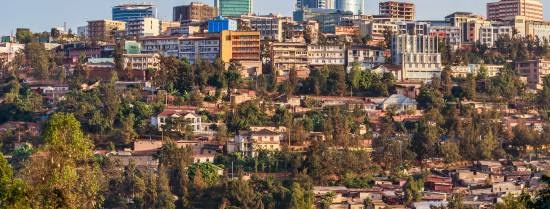IHS has won the lead in a large research project which aims to explore spatial inequalities in times of transition in East African Cities. The research will investigate ways in which institutions influence inequality and, more specifically, how the institution of Complex Land Markets impacts on spatial justice.
The project will be implemented over two years by three core partners – IHS, the institute for housing and urban development studies (Erasmus University Rotterdam), IPE Tripleline (London) and the Bartlett Development Planning Unit (University College London). The three core partners are collaborating with national experts in Uganda and Somaliland.
Land markets have an important role in the urbanization process, as they determine access to urban space and uncontrolled land markets often support fast and unplanned urban expansion, with slums that lack basic services. Naturally, this has a negative impact on the economy and human development.
While research has been conducted to study the impact of formal and informal institutions on the aforementioned processes, less focus has been put on how exactly these institutions interact. Because urbanization in East Africa is very fast and dynamic and planning resources are scarce, formal institutions have a somewhat limited capacity to manage city expansion. In this context, understanding the dynamics of both formal and informal institutions becomes increasingly important. These relations that refer to urban land market transactions are understood as “Complex Land Markets”.
In this research project, we focus on the City as a System and look at land markets as pivotal to different sectors, from real estate, to transport and industry. The research will look at four cities in East Africa: Kampala and Arua in Uganda and Hargeisa and Berbera in Somaliland and attempt to better understand urbanisation and land markets in East African cities in their own specific terms, as opposed to “Western” views on urban planning.
The hypothesis is that when spatial inequalities happen, they occur because of transitory institutions and by improving them, we can bring about positive change. We intend to investigate interventions like promoting transparency of transactions, open data, building trust and prioritization of social functions in land-use, to discover how to use the potential of land markets of operating more effectively, in broad public interest.
The research investigates ways in which institutions influence inequality and, more specifically, how the institution of Complex Land Markets impacts on spatial justice. At this point in the project, the team has conducted a first workshop in Kampala, Uganda and has engaged with local partners and stakeholders from the two countries, to gather input for the research design.
The project is implemented over two years by three core partners – IHS, the institute for housing and urban development studies of Erasmus University Rotterdam, IPE Tripleline (London) and the Bartlett Development Planning Unit (University College London). The three core partners are collaborating with national experts in Uganda and Somaliland.
Inception workshop, Uganda
Have a look at the images from the first workshop from Kampala!

- More information
Photo credit: FCG
- Related content
- Related links
- About the project: Spatial Inequality in Times of Urban Transition




